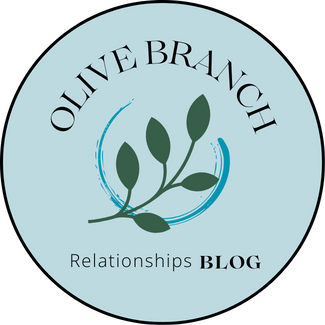You care about them.
You laugh together, support each other, share your lives.
And yet—when something feels off, when you need to say no, or take space, or name a hurt—you freeze.
Your heart races.
Your mind spins.
And suddenly, the thought of setting a boundary feels bigger than the relationship itself.
The Quiet Struggle With Friendship Boundaries
Amy (name changed) came into therapy exhausted.
She’d been close friends with Kate since college. But lately, their friendship had started to feel heavy. Kate often vented for hours about her problems, rarely asking how Amy was doing. She would call at all hours, expect immediate responses, and subtly guilt Amy when she needed space.
Amy felt drained. But more than that, she felt trapped by her own fear.
“She’s going through a lot,” Amy said. “I don’t want to be selfish. But I also don’t want to feel this anxious all the time.”
The idea of saying, “I need some space,” made her stomach turn. Not because she didn’t love her friend—but because somewhere deep down, she feared that speaking up meant she’d lose her.
The EFT Insight: The Anxiety Isn’t Just About the Boundary
In Emotionally Focused Therapy, we know that boundary-setting anxiety often has roots in our early attachment experiences.
For Amy, her fear wasn’t really about Kate getting upset. It was about an old, buried story:
If I take up space, I’ll be too much. If I ask for what I need, I’ll be left.
As a child, Amy’s needs were often met with silence or guilt. She learned to caretake others to stay connected. That strategy had worked—until it didn’t. Now, it was costing her energy, clarity, and peace of mind.
The Tool: Anchoring in Self-Compassion First
Setting a boundary isn’t just about finding the right words—it’s about feeling safe enough to speak them.
Before we even talked about what to say, we focused on helping Amy reconnect with herself. She needed to feel grounded in her own experience before she could express it to someone else.
One of the first steps was naming the anxiety when it showed up:
“I feel scared. Not because I’m wrong—but because this is unfamiliar. My nervous system is reacting to old fears, not just this moment.”
From there, Amy practiced a boundary script that honored both her care and her capacity:
“I love being there for you. And lately, I’ve been feeling overwhelmed. I want to stay connected, but I also need some space to rest and refuel. Is it okay if we check in every few days instead of daily for a bit?”
She told her friend. And then she breathed.
Kate was surprised, but respectful. The world didn’t end. And Amy didn’t have to abandon herself to stay close.
If You’re Anxious About Setting Boundaries…
It doesn’t mean you’re weak. It means somewhere along the way, you learned that keeping people close meant keeping yourself small.
But here’s the truth:
The right people can handle your boundaries.
Setting a boundary is a doorway to deeper trust—with others, and with yourself.
Start by grounding in your body. Remind yourself you’re safe. Then speak from care—not control. You don’t need to fix, just to be clear.
This is how we grow safer relationships—with others and with ourselves.
May this be a small olive branch of hope for wherever you are.
Warmly,
Susan
 Susan Liddy, MAMFT
Susan Liddy, MAMFT
Cornerstone Family Services
Roswell, Georgia
🌿 Struggling to Set Boundaries With Someone You Care About?
If speaking up in your friendships leaves you anxious, guilty, or unsure, you’re not alone. Boundaries can feel scary—especially when your heart is involved. I offer complimentary consultations to help you explore whether therapy could support you in honoring your needs while staying connected.
Whether you’re navigating people-pleasing, emotional burnout, or fear of disconnection, there’s a path to clarity and self-trust.
Let’s talk. Sessions are available in-person in Roswell, GA or virtually across Georgia. (My fees, should we choose to work together, range from $125–$135 per session.)


